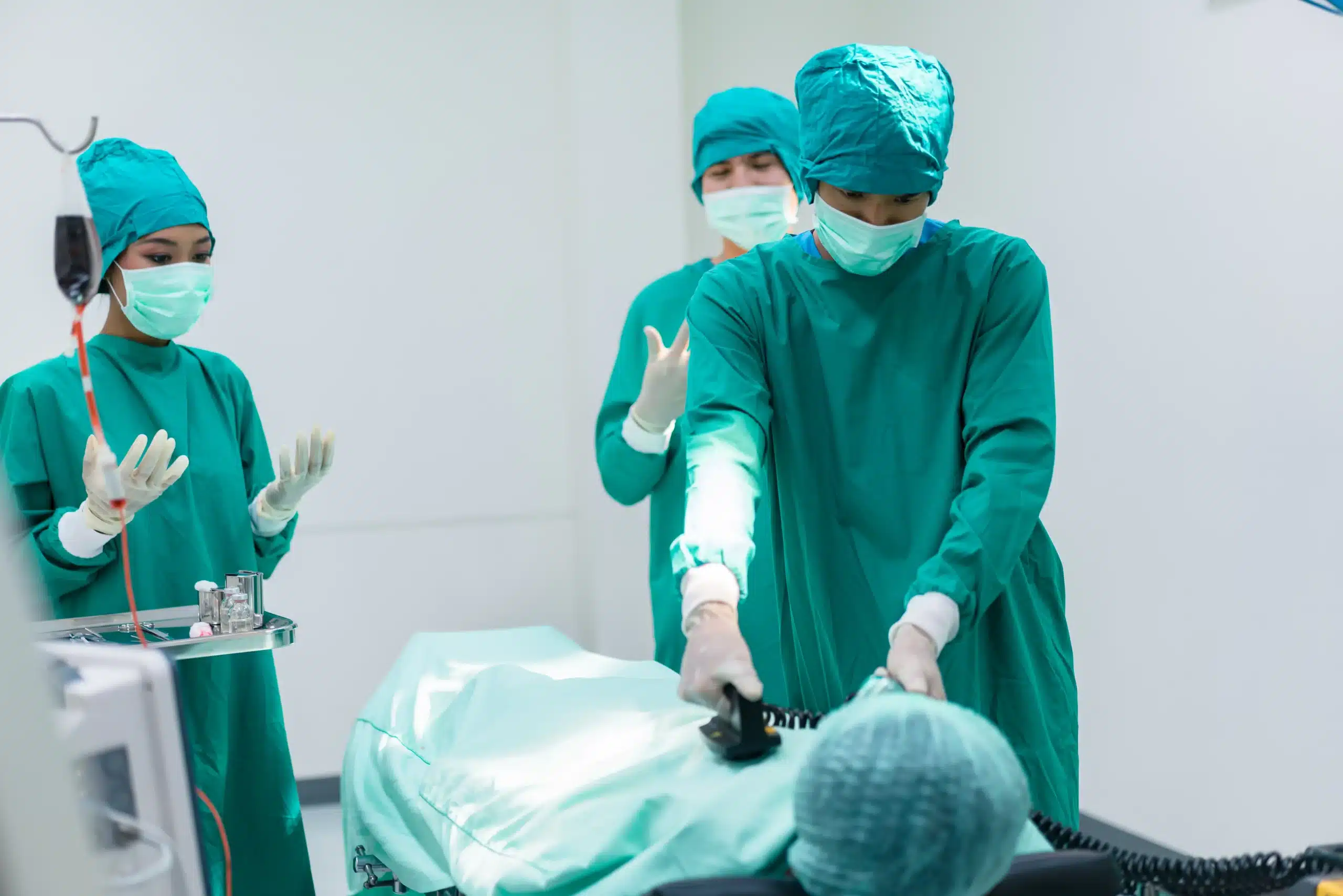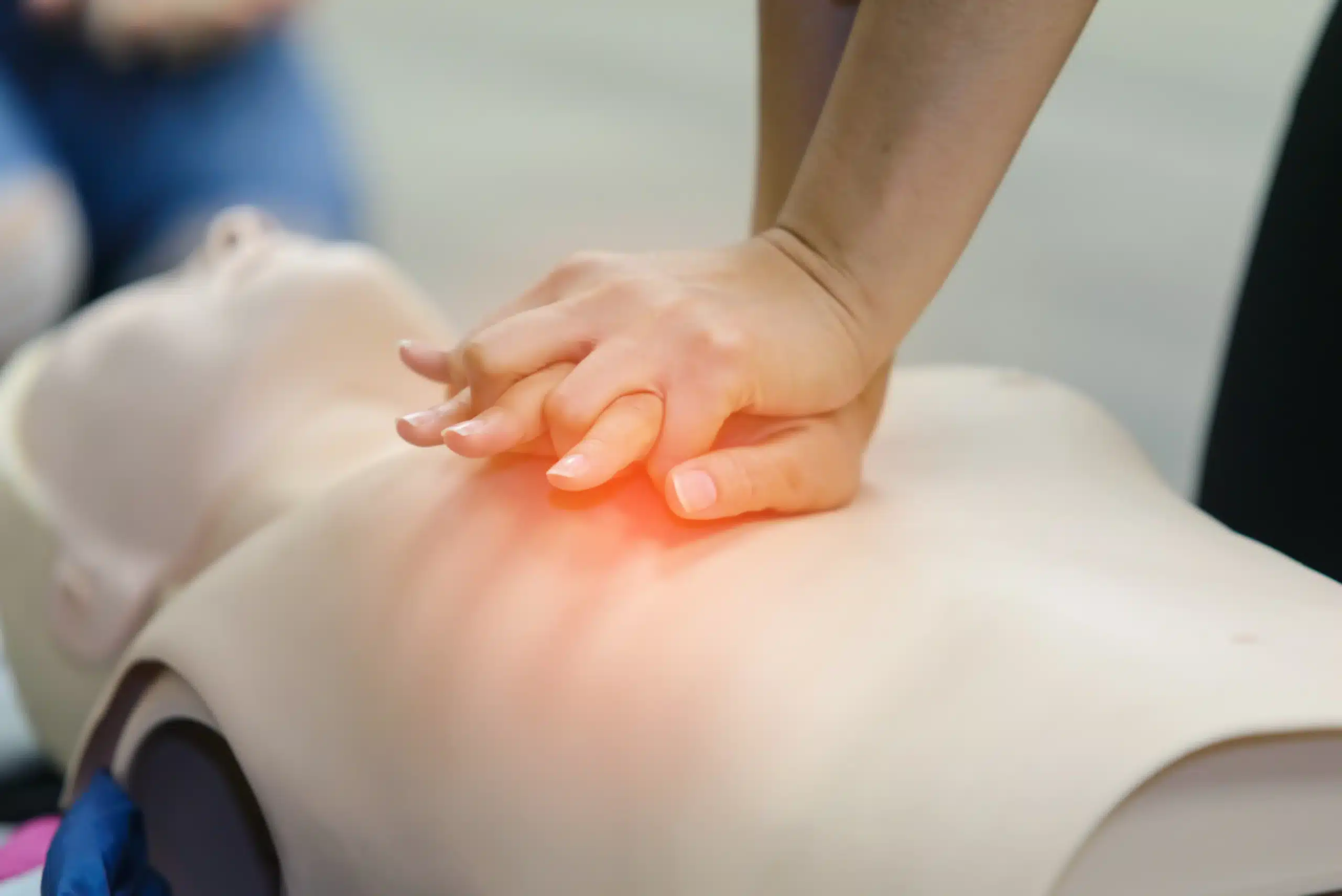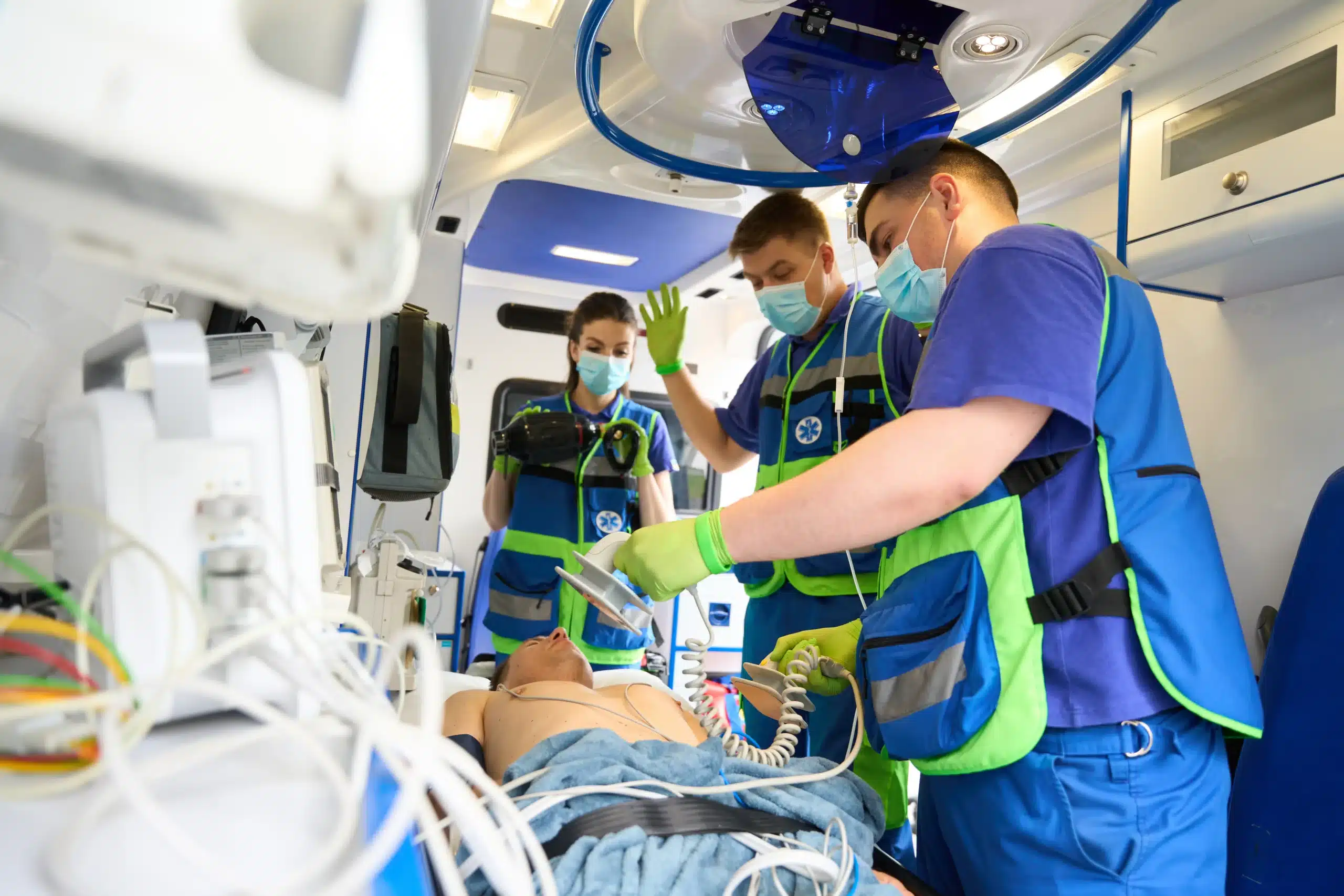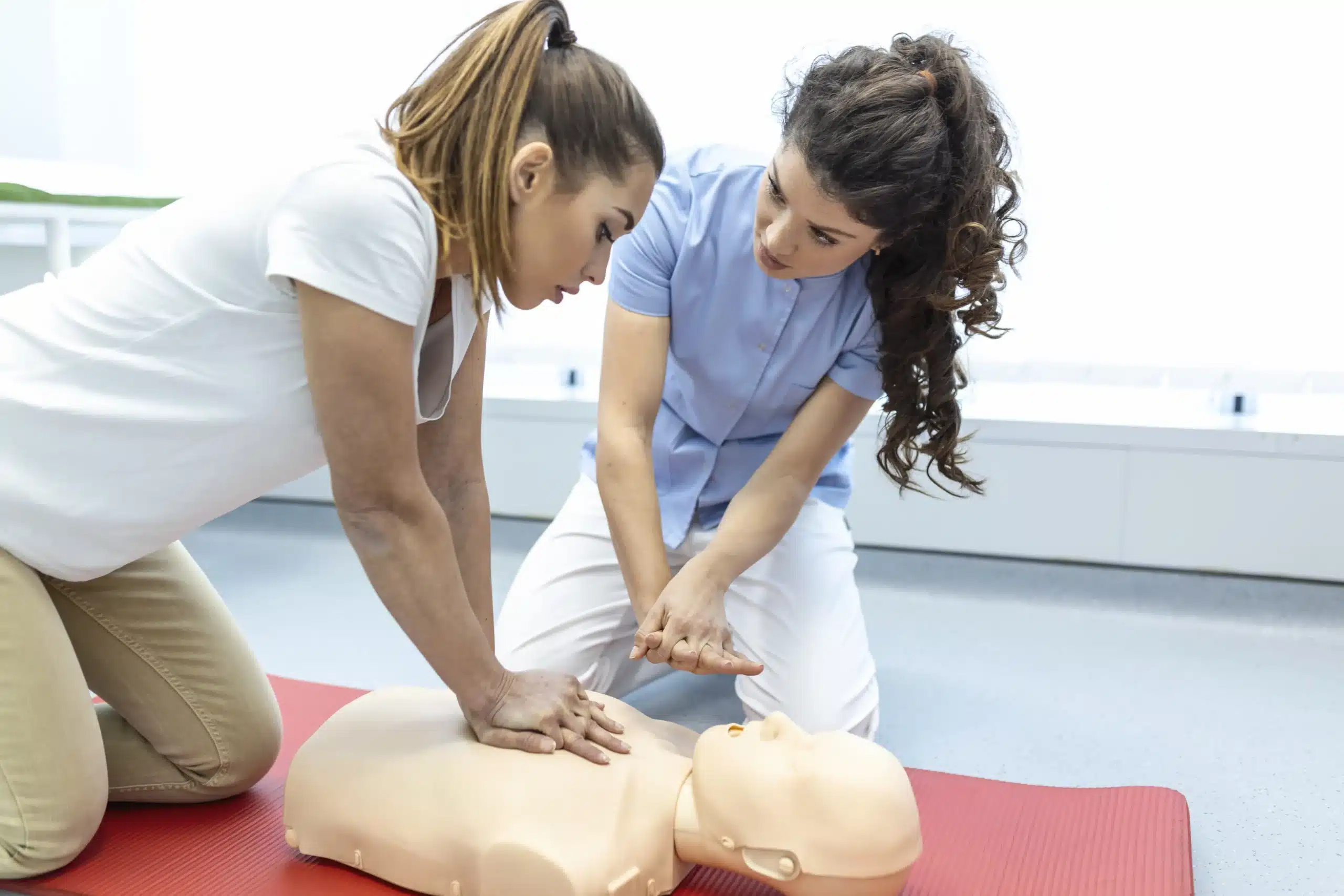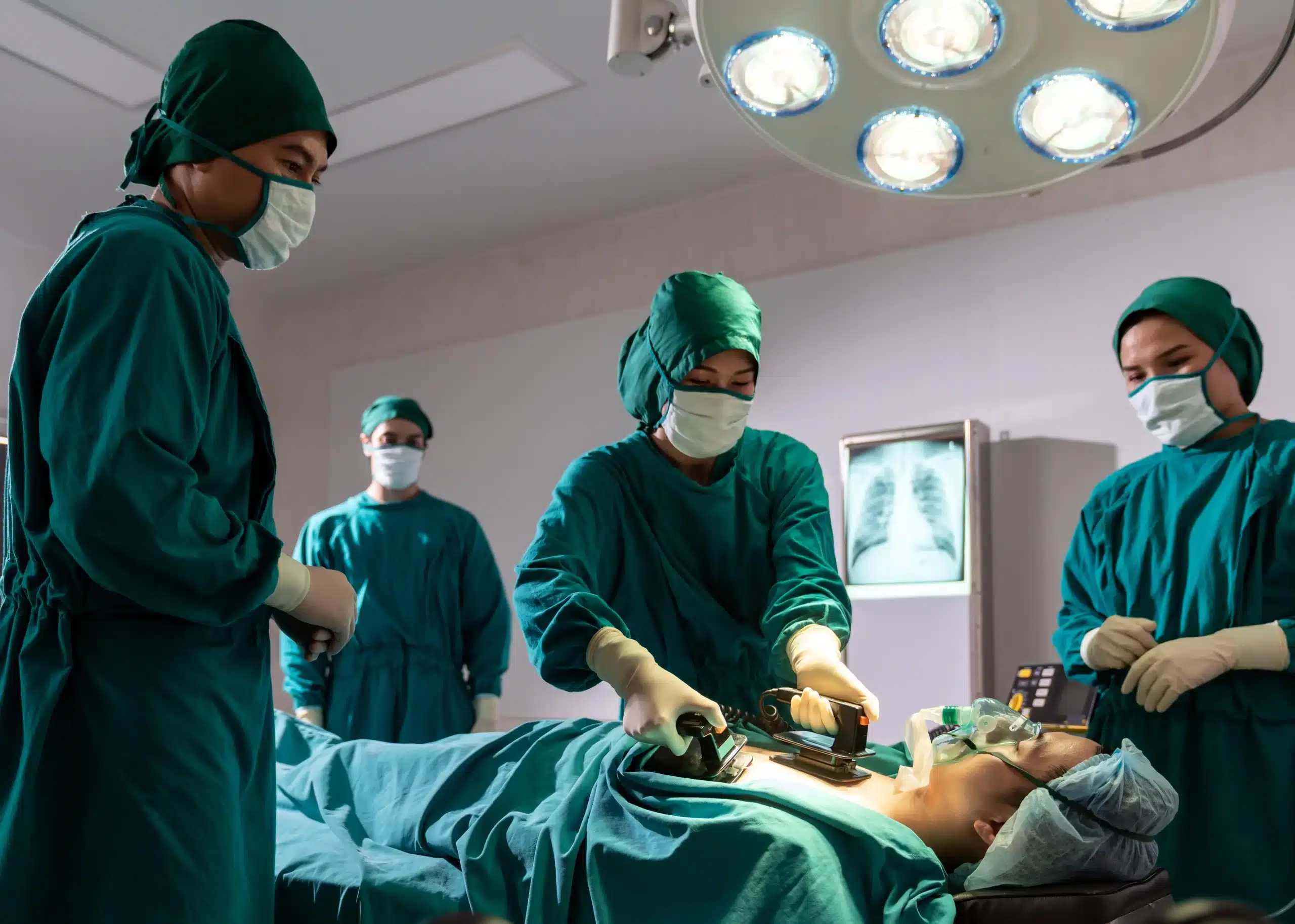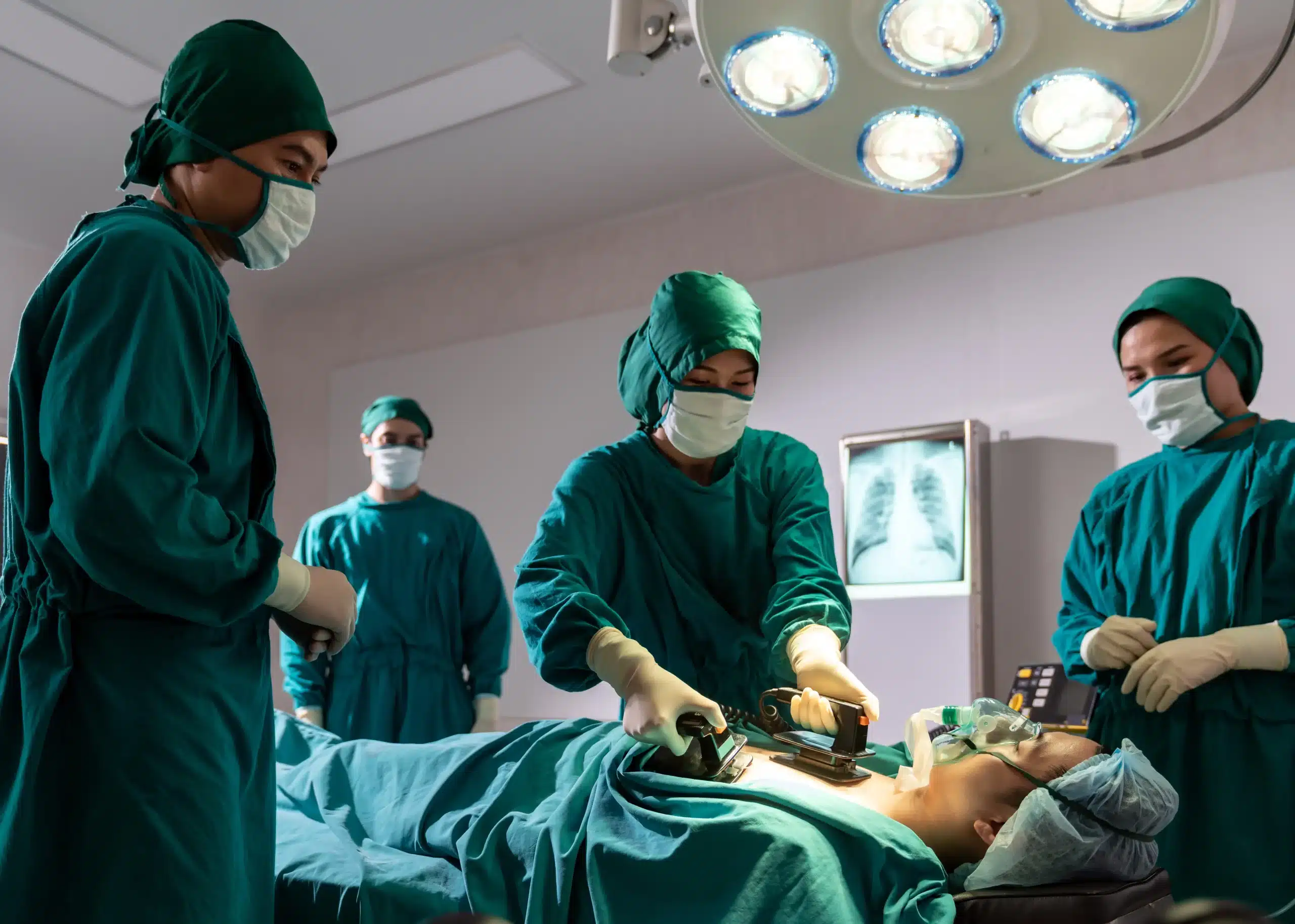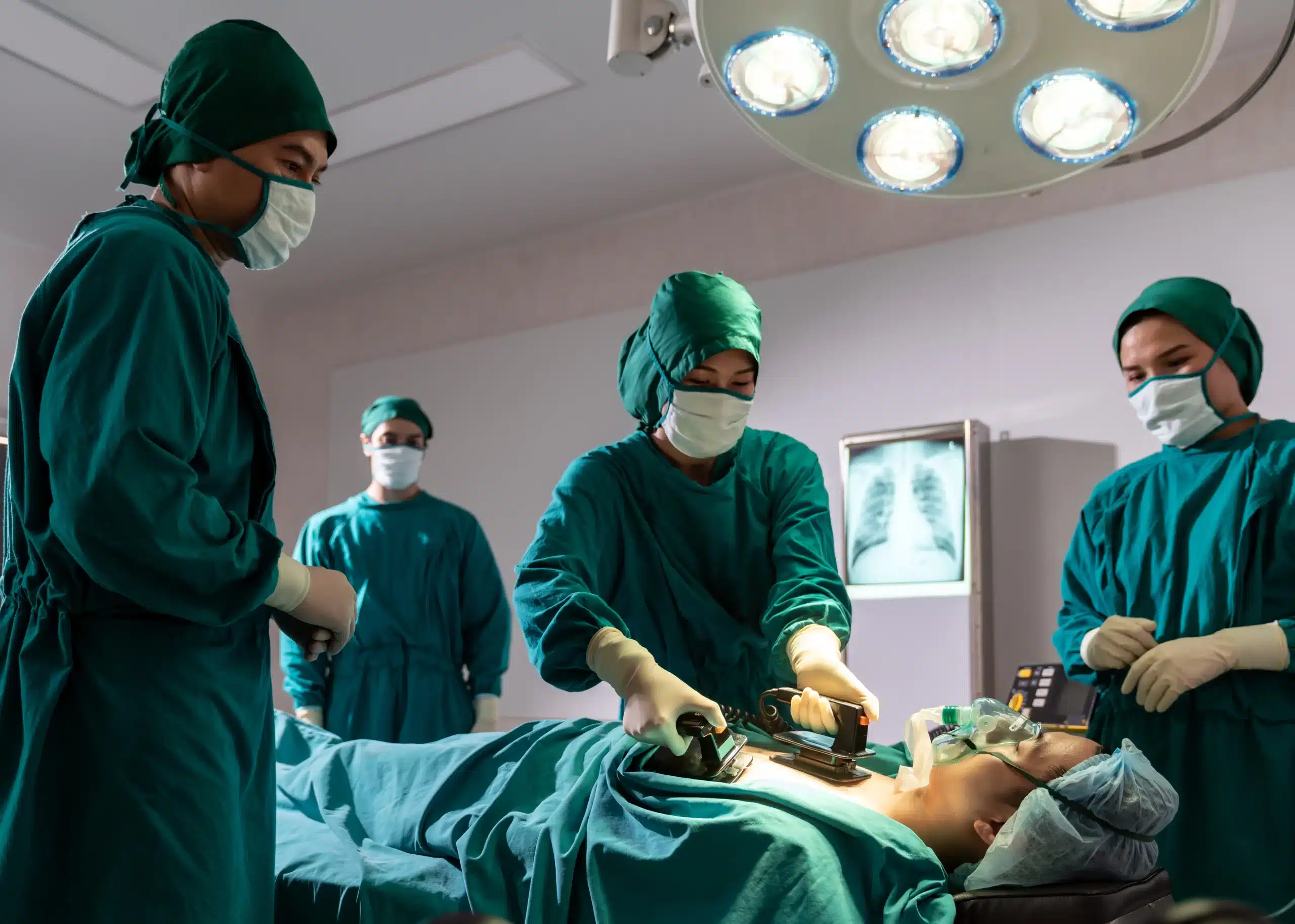Your CPR skills are valuable, and keeping them current is easier than you think. This guide simplifies CPR renewal in Fairfax, providing a clear and comprehensive overview of the process. We’ll discuss the importance of maintaining your certification, explore the various course formats available, and help you choose the best option based on your learning style and schedule. We’ll also cover the costs associated with CPR renewal and offer practical advice for overcoming common challenges, such as time management and finding accredited courses. For those in the North Bay area, we’ll highlight the convenient and affordable renewal options offered by San Rafael CPR Classes, including their unique RQI program for medical professionals.
Key Takeaways
- CPR renewal keeps your skills sharp and ensures you’re ready to help in an emergency. Find a convenient course format—in-person, online, or blended—that works for you. Regular practice between renewals reinforces your skills and builds confidence.
- Choosing the right CPR renewal course involves considering your profession, required certification level, and preferred learning style. Explore various providers, compare costs, and prioritize courses accredited by recognized organizations like the American Heart Association.
- Maintaining your CPR certification is a commitment to community safety and empowers you to act quickly and effectively in critical situations. Prioritize finding a course that fits your schedule and learning preferences, and remember that any CPR is better than no CPR in a life-threatening event.
What is CPR Renewal in Fairfax?
CPR renewal in Fairfax is how you maintain your life-saving CPR skills. CPR certifications, like those from the American Red Cross, are typically valid for two years. You’ll need to take a renewal course before your certification expires. These courses refresh your knowledge and ensure you’re up-to-date on the latest CPR techniques. Many organizations offer CPR renewal classes in Fairfax, making it easy to find a convenient option. For those located near San Rafael, Corte Madera, and Fairfax, CA, you can find convenient and affordable renewal courses at San Rafael CPR Classes.
Why Renew Your Certification?
Renewing your CPR certification is crucial for several reasons. It ensures you can continue to provide assistance in emergencies, maintaining the skills and confidence to act quickly and effectively. Many workplaces and organizations require valid CPR certification, so renewing on time prevents lapses in your qualifications. Check with your employer or licensing organization to understand their specific renewal requirements. Staying certified demonstrates your commitment to providing safe and effective care.
Stay Current with CPR
Even if you remember the basics, CPR guidelines and best practices evolve. Renewal courses cover these updates, ensuring you’re using the most effective techniques. The Red Cross Scientific Advisory Council points out that skills can decline even months after initial training. Regular refreshers are key to maintaining proficiency. The CDC still recommends performing CPR in an emergency, even with an expired certification—it’s always better to try than to do nothing. Staying current with your training maximizes your ability to help and could potentially save a life. Consider exploring convenient and efficient renewal options like RQI classes offered by San Rafael CPR Classes.
Top CPR Renewal Courses in Fairfax
Finding the right CPR renewal course can feel overwhelming, but several excellent options are available in Fairfax and the surrounding areas. Here’s a closer look at some leading providers:
San Rafael CPR Classes
If you’re near San Rafael, Corte Madera, or Fairfax, San Rafael CPR Classes offers BLS CPR training for various skill levels, from healthcare providers and first responders to teachers and the general public. Their focus on customer service and a low-price guarantee makes them a popular choice. They also offer a unique RQI program for medical professionals seeking a streamlined certification or recertification process. Learn more about their RQI classes. San Rafael CPR classes also maintains a directory of CPR resources in Northern California.
American Red Cross
The American Red Cross is a trusted name in CPR training, and their Fairfax, VA, location provides BLS certification and renewal courses. These courses adhere to the latest guidelines and are designed specifically for healthcare providers and first responders. Their website offers easy online registration and class schedules.
Fairfax Rescue
Fairfax Rescue offers AHA-certified CPR and First Aid training suitable for various professions and experience levels. While they offer convenient online courses, an in-person skills session is required to complete your certification. This blended approach allows for flexible learning while ensuring you gain practical, hands-on experience.
Local Hospitals and Medical Centers
Many local hospitals and medical centers in the Fairfax area offer CPR renewal courses, often focusing on BLS recertification for healthcare professionals. These courses provide up-to-date training on life-saving skills, including CPR and AED use for adults, children, and infants. Check with hospitals like Inova Fairfax Hospital or Reston Hospital Center for their course offerings.
CPR Renewal: Course Formats and Options
Choosing the right CPR renewal course format depends on your learning style, schedule, and preferences. Let’s explore the most common options: in-person, online, and hybrid courses. Each format offers distinct advantages, so consider what best suits your needs.
In-Person Classes: Hands-on Learning
In-person CPR renewal classes offer a structured learning environment with direct interaction with instructors and other students. This format emphasizes hands-on practice, allowing you to develop and refine your skills in a controlled setting. You’ll receive immediate feedback from certified instructors, ensuring you perform compressions and rescue breaths correctly. In-person training is ideal for those who learn best through tactile experiences and prefer personal guidance. Plus, practicing with other students can build confidence and teamwork—essential in emergency situations. Our San Rafael CPR classes offer this hands-on learning experience, providing a supportive environment to master essential CPR techniques. For those in the North Bay, check out our directory of CPR classes.
Online Courses: Flexible Learning
Online CPR renewal courses provide flexibility, allowing you to learn at your own pace and convenience. You can access course materials anytime, anywhere, fitting the training around your busy schedule. Online courses often incorporate interactive elements like videos and simulations to reinforce learning. While online courses offer convenience, many organizations, including the American Heart Association, require an in-person skills session to complete your certification. This blended approach lets you learn the theoretical aspects online and then demonstrate your skills practically. Check with your certifying body to confirm their requirements for online renewal. If you’re looking for a quick and efficient way to renew your certification, especially for healthcare providers, consider our RQI classes.
Hybrid Courses: Combining the Best of Both
Hybrid courses combine online learning with the hands-on practice of in-person sessions. This format allows you to complete the cognitive portion online at your own pace. Then, you attend a shorter, in-person skills session to practice and demonstrate your proficiency. Hybrid courses offer a balanced approach, catering to diverse learning styles and schedules. They can be particularly helpful for those who prefer online learning’s flexibility but also recognize hands-on training’s importance. The Red Cross offers a variety of hybrid learning options, blending online modules with in-person skill sessions. We also offer a low price guarantee to ensure you’re getting the best value for your training.
CPR Renewal Costs in Fairfax
CPR renewal costs in Fairfax vary depending on several factors, including the certification level (BLS, ACLS, PALS, etc.), the course format (online, in-person, or blended), and the training provider. Understanding these factors helps you find a course that fits your budget and learning preferences.
Average Prices
CPR certifications are typically valid for two years. Renewal is recommended within 30 days of expiration to keep your skills and credentials current. Basic Life Support (BLS) renewal courses, often required for healthcare providers and first responders, typically range from $70 to $90. Check with various providers like the Red Cross for their latest pricing.
Discounts and Promotions
Many organizations offer discounts and promotions for CPR renewal, making it more affordable to maintain these essential skills. The Red Cross sometimes has promotions for training supplies and other resources. Group discounts may be available if you’re renewing with colleagues or friends. Check with your employer or professional organization for potential cost savings. San Rafael CPR Classes also offers a low price guarantee.
Invest in Life-Saving Skills
While cost is a factor, CPR renewal is an investment in life-saving skills. Regularly refreshing your knowledge and techniques allows you to respond confidently in emergencies. The American Red Cross emphasizes the importance of maintaining CPR skills, and convenient renewal options make it easier to stay prepared. Renewing your CPR certification is a commitment to the safety and well-being of your community.
What to Expect During CPR Renewal
Renewing your CPR certification is a straightforward process designed to refresh your life-saving skills. Here’s a glimpse of what you can expect:
Course Length and Content
CPR renewal courses are shorter than initial certification courses, typically lasting a few hours. The BLS renewal course offered by providers like San Rafael CPR Classes focuses on core skills such as high-quality CPR for adults, children, and infants, along with AED use and relief of choking. You’ll also review essential teamwork and problem-solving skills for responding to emergencies effectively.
Skills and Updated Techniques
CPR techniques can evolve based on the latest scientific research. Renewal courses ensure you’re up-to-date on current best practices. Even if you’ve maintained your skills since your last certification, a refresher course reinforces those skills and introduces any new guidelines from organizations like the American Heart Association or the Red Cross. This commitment to staying current ensures you provide the highest quality care in an emergency.
Assessment and Certification
Most CPR renewal courses include a skills test to confirm your competency. You’ll demonstrate your CPR and AED techniques to the instructor. Upon successful completion, you’ll receive your CPR certification card, often the same day. This certification is typically valid for two years, allowing you to continue your professional or volunteer activities with confidence.
When to Renew Your CPR Certification
Knowing when to renew your CPR certification is crucial for maintaining your life-saving skills. Let’s break down the key timelines and what to do if your certification lapses.
Certification Validity
CPR certifications are generally valid for two years. This standard is upheld by most organizations, including the American Heart Association and the American Red Cross. Keeping track of your certification’s expiration date is easy—check your card or digital certificate for details.
Recommended Renewal Time
It’s always best to renew your CPR certification before it expires. We recommend starting the renewal process about a month before your current certification expires. This timeframe gives you plenty of time to find a class that fits your schedule and avoids any gaps in your certification. Plus, refreshing your skills before they get rusty ensures you’re always prepared to respond to an emergency. For healthcare professionals, our RQI program offers a convenient way to quickly renew certifications and stay up-to-date.
Handling Expired Certifications
Life happens, and sometimes certifications expire. If yours has lapsed, don’t panic. While you’ll need to retake a full course to get recertified, the most important thing to remember is that any CPR is better than no CPR. The CDC still recommends performing CPR even if your certification is expired. It’s always better to try and help than to do nothing in a life-threatening situation. Regular practice is key to retaining these vital skills. Even if your certification is current, refreshing your knowledge through CPR training can boost your confidence and preparedness. Check out our low price guarantee for affordable renewal options.
Choose the Right CPR Renewal Course
Picking the right CPR renewal course is key to keeping your skills sharp and your certification current. It’s not a one-size-fits-all situation; the best course for you depends on your specific needs and circumstances. Let’s break down how to find the perfect fit.
Factors to Consider
First, think about your timeline. Renewal courses are designed for certifications expiring soon—typically within 30 days—so factor that into your decision. Don’t wait until the last minute! Early planning ensures a smooth transition and prevents any lapse in your CPR certification. Time management is essential; consider how a renewal course will fit into your existing schedule. Juggling work, family, and other commitments can be tricky, so choose a course that realistically aligns with your availability. Consider our RQI program for a quick and efficient renewal process.
Match Courses to Your Needs
Next, consider your profession and the type of CPR certification you require. Courses are tailored to different audiences, such as healthcare providers (BLS Certification) or the general public (Heartsaver courses). Heartsaver courses are a good fit for various roles, including parents, teachers, and workplace employees. If you’re a healthcare professional, the Basic Life Support (BLS) renewal course is essential. It refreshes your skills in providing high-quality CPR and using an automated external defibrillator (AED) for adults, children, and infants. Make sure the course you select aligns with your specific job requirements and the level of care you provide. Check out our Northern California CPR directory for more options.
Balance Convenience and Quality
Finally, find a balance between convenience and quality. While a quick online course might seem tempting, ensure it’s taught by qualified instructors and covers all the necessary material. Look for courses that offer immediate certification upon completion, especially if you need proof of certification quickly for your job. Hands-on practice is crucial for mastering CPR techniques, so prioritize courses that include in-person skills sessions. A convenient course shouldn’t compromise the quality of the training. Check if the program is accredited and covers the latest CPR guidelines. A well-rounded course equips you with the confidence and competence to respond effectively in emergencies. San Rafael CPR classes offers a low price guarantee, ensuring you receive high-quality training at an affordable price.
Overcome CPR Renewal Challenges
Let’s be honest, renewing your CPR certification can feel like one more thing on your to-do list. But it’s a critical skill, and staying current is easier than you think when you break down the process. Here’s how to tackle some common renewal hurdles:
Manage Time and Scheduling
Juggling work, family, and other commitments makes finding time for anything tricky. The key is to plan ahead. Block out time on your calendar specifically for CPR renewal, just like you would for any other important appointment. Look for courses offered on weekends, evenings, or even during lunch breaks to minimize disruption to your routine. Many providers, including San Rafael CPR Classes, offer a variety of class times to accommodate busy schedules. Check our course calendar to find a time that works for you.
Find Accredited Courses
Not all CPR certifications are created equal. Make sure the course you choose is accredited by a recognized organization like the American Heart Association (AHA). This ensures your certification is widely accepted and demonstrates a commitment to high-quality training. A valid certification is essential for many professional fields, including healthcare, education, and childcare. San Rafael CPR Classes offers AHA-compliant BLS courses that meet these standards. Our EMSA Child Care Health & Safety course is specifically designed for childcare providers in California.
Retain Skills and Practice
It’s easy to let skills lapse if you don’t use them regularly. Think of CPR renewal not just as a requirement, but as a chance to refresh your knowledge and build confidence. Even between renewals, you can practice key techniques like chest compressions and rescue breaths. Consider watching refresher videos or practicing with a friend or family member. Consistent practice, even for a few minutes each month, can significantly improve your recall and effectiveness in a real emergency. For healthcare professionals needing a quick and efficient way to maintain their skills, our RQI program offers flexible renewal options. We also offer a low price guarantee, so you can get the training you need at an affordable price. For a comprehensive list of CPR resources in Northern California, visit our directory.
Prepare for Your CPR Renewal Class
Getting ready for your CPR renewal doesn’t have to be stressful. With a little planning and the right mindset, you can walk into class feeling confident and prepared. Here’s how to make the most of your renewal experience:
Gather Materials and Study
Before your class, take some time to review the current CPR guidelines. A quick refresher will help you recall the core concepts and identify any areas where you might need extra focus. Check if your chosen CPR provider, like San Rafael CPR Classes, offers any study materials. Many organizations provide student handbooks or online resources you can review before class. You can also explore resources like the American Heart Association website for the latest guidelines and information.
Get Mentally and Physically Ready
CPR training involves physical activity, so it’s a good idea to wear comfortable clothing to your class. Beyond the physical aspect, being mentally prepared is also important. Remind yourself why CPR is such a valuable skill. Knowing you’re learning something that could truly save a life can make the whole experience more meaningful. If you find yourself feeling anxious about the skills testing, try practicing on a pillow or stuffed animal beforehand. Even a little practice can build your confidence.
Maximize Your Renewal Experience
If your certification is close to expiring, consider signing up for a renewal course specifically. These courses are often streamlined to focus on the essential updates and skills practice. Check with your local providers, such as San Rafael CPR Classes, for available renewal options. Also, think about any specific questions you have about CPR. Write them down and bring them to class so you can get personalized guidance from your instructor. Taking an active role in your learning will help you retain the information and feel fully prepared for any emergency.
Maintain CPR Skills Between Renewals
It’s important to keep your CPR skills fresh, even after you’ve received your certification. Regularly reviewing and practicing techniques can make a real difference if you ever need to use them in a real-life emergency. Here are a few ways to stay sharp between renewals:
Practice at Home
Set aside some time each month to refresh your memory. You can practice the steps of CPR on a pillow or stuffed animal. The Red Cross offers printable guides and resources to help you practice at home, covering everything from chest compressions to rescue breaths. Running through these steps regularly will build your muscle memory and confidence. Consider making practice a family activity—teaching CPR skills to your loved ones can empower them too.
Stay Informed on CPR Updates
CPR guidelines can change as medical knowledge advances. Staying up-to-date on the latest recommendations is crucial for providing effective care. Websites like CPR1 offer information on current CPR practices and the importance of recertification. Subscribing to newsletters or following reputable organizations like the American Heart Association on social media can also help you stay informed about any updates. Our RQI program is designed to keep medical professionals current with the latest guidelines quickly and efficiently.
Learn Continuously
Even if your certification lapses, remember that attempting CPR is always better than inaction during a medical crisis. However, maintaining a current certification is ideal. Check out our low price guarantee and explore our course options, including BLS certification, EMSA Child Care Health & Safety, and other essential certifications listed in our Northern California CPR directory. Continuous learning and regular practice are the best ways to ensure you’re prepared to help when it matters most.
Related Articles
- CPR Courses in Fairfax: Your Complete Guide – San Rafael CPR Classes
- ACLS Renewal in Fairfax: Your Complete Guide – San Rafael CPR Classes
- BLS Certification in Fairfax: The Complete Guide – San Rafael CPR Classes
- Why CPR is Important in Healthcare – San Rafael CPR Classes
- RQI Training in Corte Madera: Everything You Need to Know – San Rafael CPR Classes
Frequently Asked Questions
How often do I need to renew my CPR certification?
CPR certifications are typically valid for two years. It’s a good idea to begin the renewal process about a month before your certification expires to avoid any gaps in your qualification.
What are the different CPR renewal course formats available?
You’ll find in-person classes, online courses, and hybrid options (a mix of online and in-person). In-person classes provide hands-on practice and direct feedback from instructors. Online courses offer flexibility for learning at your own pace, but often require an in-person skills session. Hybrid courses combine the convenience of online learning with the benefits of practical training.
What’s the typical cost of CPR renewal in Fairfax and the surrounding areas?
Prices vary depending on the course type, format, and provider. Basic Life Support (BLS) renewal typically ranges from $70 to $90. Look for providers offering discounts, group rates, or a low-price guarantee. Remember, CPR renewal is an investment in life-saving skills.
What should I expect during a CPR renewal course?
Renewal courses are shorter than initial certification classes, usually lasting a few hours. They focus on core skills like high-quality CPR for adults, children, and infants, AED use, and choking relief. Expect a skills test to demonstrate your proficiency, and you’ll receive your updated certification card upon successful completion.
How can I maintain my CPR skills between renewals?
Regular practice is key. Review the steps at home using a pillow or mannequin. Stay informed about any updates to CPR guidelines by checking reputable websites or following organizations like the American Heart Association. Consider making practice a family activity to keep everyone’s skills sharp.
